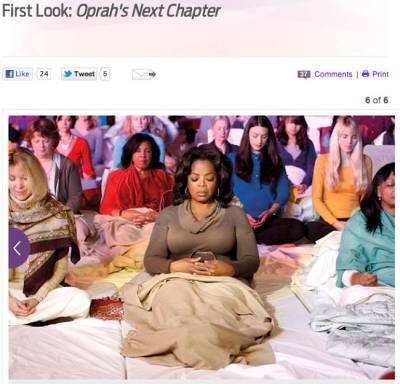Christian meditation: What practices are New Age and what is biblical?
What form of meditation is not associated with Christianity?

Silk believes many Christian leaders have abandoned the meditation practice "to the occult and the New Age probably largely because Christian leaders that are so measured by arguments and the ability to defend your faith in the court of law instead of in the court of character or experience."
Similarly, McManus suggested that New Age practices have become popular because Christians simply haven't addressed meditation "honestly or effectively." Moreover, "Christians don't meditate. We don't pray."
Neil Ahlsten, creator of the Abide Prayer & Meditation App, observed that even though the Bible "gives clear instructions on how to meditate on Scripture and the benefits you get from it," Christians are "not hearing the biblical facts on why and how to meditate."
"Instead, we hear pop culture telling us to do Buddhist or Hindu meditations. Then we think that meditation is part of other religions and thus not in the Bible," he pointed out.
"I worry that the popularity of Eastern meditation in our culture will make Christians think that all meditation is bad, even though it’s clearly there in the Bible. Why should we let Satan control the word meditation? I want to reclaim a biblical view of meditation and help people benefit from God’s Word."
Specifically, some of the unbiblical meditation practices that are popular today include ones taken from Buddhism — where one meditates on "nothing" and the goal is nothingness, McManus said.
"That is the ultimate goal of Buddhism, for you to have the elimination of all desire," the Los Angeles pastor explained.
How does that contrast with Christianity?
"Jesus' goal is not nothingness, it's fullness," McManus underscored.
Rather than meditating on nothing, McManus said he meditates "on the truth of what God is speaking into my life. I would rather be in a conversation with the Creator of the universe than to be trying to disconnect myself into nothingness."
Jones, of the Abide app, said that the practice of "emptying your mind" is not only unbiblical but also dangerous for Christians.
"The kind of meditation discussed in Scripture encourages filling a believer's mind with God’s wisdom. This practice greatly differs from New Age and Eastern forms of meditation," Jones argued.
From what he has observed, Winger is concerned that people are co-opting various unbiblical meditation practices "to reinforce all kinds of beliefs with an aim toward helping you feel good (whether they are true or not)."
"They sometimes make the goal of meditation a kind of 'mindfulness' which is sadly a reinforcing of these various false teachings; just trying to get you to deeply believe in the doctrines of Hinduism or Buddhism or Gnosticism (yeah, there’s actually a Gnostic church in LA even today)," he said.
"This is a type of meditation-reinforced delusion and it is an example of how meditation can be used to get people to believe things that aren’t true."




























